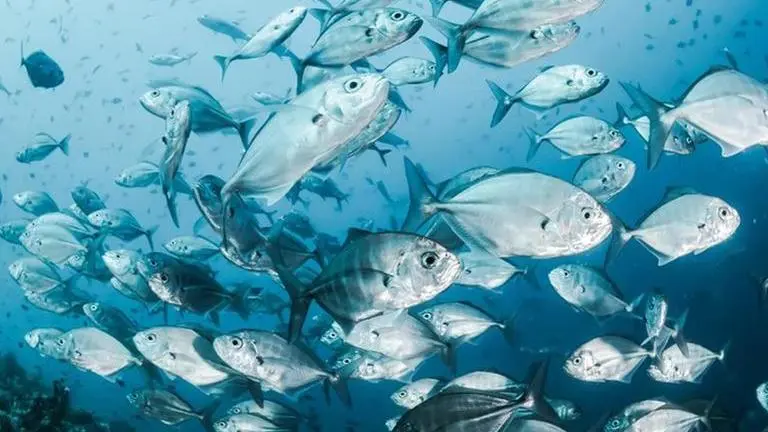Updated 18 September 2021 at 13:12 IST
Blue food revolution can help solve climate change, malnutrition & economic crisis: Study
New research has revealed how aquatic food sectors can play a vital role in providing healthy diets and a more sustainable, equitable and resilient food system.
- Science News
- 4 min read

New research has revealed how aquatic food sectors can play a vital role in providing healthy diets and a more sustainable, equitable, and resilient food system across the globe. The proceedings of the study were published in the journal Nature. The study highlighted the opportunity that the vast diversity of aquatic, or "blue" foods can provide in the coming decades, which can solve the problem of malnutrition, provide livelihoods, restore ecological harmony, and lower food crises across the world.
According to the lead researcher, Ben Halpern, who is also a marine ecologist at UC Santa Barbara's Bren School of Environmental Science & Management, claims that "People are trying to make more informed choices about the food they eat, in particular, the environmental footprint of their food". Halpern, along with his other team members, carried out a study on the environmental sustainability of aquatic foods, small-scale producers, and the climate risks faced by the aquatic food systems. The researchers gathered the findings of over a hundred studies to find out more about the aquatic food sector. It was observed that blue foods provided a great option for sustainable food.
Study claims, 'blue food' can help solve climate change, malnutrition & economic crisis
The research claims that demand for blue foods in the global market is likely to double in the next 30 years and will be met primarily through increased aquaculture production and not by capturing fisheries. Investing in innovation and improving fishing management can enhance the consumption level and have profound effects on malnutrition. The lead author of the study claimed that "small-scale fishers—the individuals and small boats that fish in places all around the world—are a huge part of the global seafood system and are incredibly diverse in who they are and how they fish, who also directs the National Center for Ecological Analysis & Synthesis at UCSB. That diversity creates both opportunities and challenges for sustainably managing the oceans. We unpacked this diversity to help guide better management. "
The study states that blue foods are ranked more highly than terrestrial animal-sourced foods in terms of their nutritional benefits and sustainability. Many blue food species have more nutritional value compared to chicken. Trout contained 19 times more omega-3 fatty acids, while oysters and mussels had 76 times more vitamin B-12 and more iron and calcium.
Advertisement
Researchers' observation
The researcher claimed that "For the first time we got to see what more aquatic food production would mean for human health globally. What we project is that by making aquatic foods cheaper to the consumer, there's likely going to be a shift away from land-based foods like chicken, beef, and dairy. I think what made us really excited is knowing that aquatic food could be a useful solution to combating malnutrition, and really showing that comprehensively for the first time," Bren added.
The researchers observed there are many other sources of proteins and nutrients, but the blue foods are marginally higher in protein and nutrient content than all other non-vegetarian foods. However, it was found that investment in the aquatic sector can increase its efficiency and lower its environmental footprint and can be beneficial for other species, including European bass, weakfish, flatfish, sea breams, and milkfish. It was observed that blue food systems also face a higher risk of climate change, as it is creating all types of risks to humanity, including our food, and blue foods are also affected by climate change. The study claims that blue foods are diverse and can help a nation in building a strong economy, people's health and restore ecological harmony. "To realise its potential, policymakers should put in place better governance, including the participation of small producers, women, and other marginalised groups, better stewardship of the natural resources on which blue foods rely; and investment in building resilience to climate change marginalised research".
Image: Unsplash/Representational Image
With Inputs from ANI
Published By : Amrit Burman
Published On: 18 September 2021 at 13:12 IST
